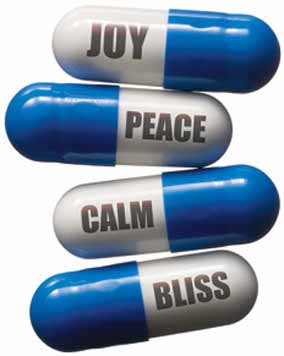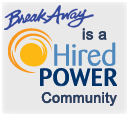 Self-medicating behavior involves taking unprescribed drugs or other substances to treat mental and medical conditions that have not been officially diagnosed or that have been diagnosed but are not being treated by an appropriate professional. It also refers to the irregular use of a prescribed drug to treat a current or chronic illness. The act of using recreational and psychoactive drugs and/or alcohol is sometimes seen as a form of self-medicating that attempts to treat or mask underlying anxiety, depression, trauma or other uncomfortable, intolerable or negative emotions.
Self-medicating behavior involves taking unprescribed drugs or other substances to treat mental and medical conditions that have not been officially diagnosed or that have been diagnosed but are not being treated by an appropriate professional. It also refers to the irregular use of a prescribed drug to treat a current or chronic illness. The act of using recreational and psychoactive drugs and/or alcohol is sometimes seen as a form of self-medicating that attempts to treat or mask underlying anxiety, depression, trauma or other uncomfortable, intolerable or negative emotions.
Self-medicating to treat Emotional Distress
It is thought that a person who struggles with drugs or alcohol settles on a “drug of choice” because the drug of choice best treats or masks the particular internal issue(s) the person is having. Unfortunately using substances to treat underlying emotional distress only works in the short term. Using inappropriate substances for self-medicating mental illness usually leads to an increased intensity of the symptoms and/or will bring out other symptoms of the illness that did not already exist.
Depressant Drugs
Self-medicating with depressant drugs such as alcohol and benzodiazepines serves to promote relaxation and ease feelings of anxiety or depression. Depressant drugs are effective in the moment; but over time changes in brain chemistry caused by long-term use of depressant drugs make the problem symptoms even worse, creating a cycle of continued use to treat ongoing, worsening symptoms. Alcohol is often used to lower a person’s inhibitions. A person under the influence of alcohol might feel pleasurable, helpful emotions more intensely such as courage, affection and easiness around others. Self-medicating with depressant drugs might also occur in an attempt to treat sleep problems.
Marijuana
Self-medicating with marijuana might occur to treat anxiety, sleep problems or other issues. Marijuana is unique in that it has many effects including that of a stimulant (in long-term users), a depressant/sedative, a psychedelic, and anti-anxiety or anxiety-producing effects. A person with ADHD might use marijuana for self-medicating.
Opiates
Self-medicating with opiate drugs such as heroin or morphine helps reduce the perceived sensation of pain and increases one’s ability to handle pain. Opiates also serve to alleviate anger, aggression and rage. The short-term effects of opiates help stabilize a person’s mood and eliminate or reduce depression and anxiety. Depression, however, is most often self-medicated with depressants or stimulants.
Stimulants
Self-medicating with amphetamines, cocaine, methylphenidate (“meth”) or other stimulant drugs can cause increased mental and physical functioning, increased or maintained energy, bring on euphoric and pleasurable feelings, increase self-esteem and relieve depression and social anxiety. But as with other inappropriate drugs used to self-medicate, the effects are short-lived.
 Call Today! (800) 910-9299
Call Today! (800) 910-9299







Speak Your Mind
You must be logged in to post a comment.